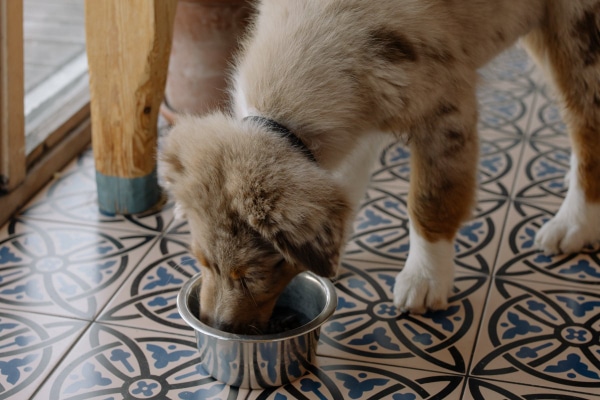How long can a dog go without pooping?
In most cases, healthy dogs without any underlying health conditions can go 48 hours without pooping (and sometimes longer) without any cause for serious concern. There’s no hard and fast rule, but many veterinarians will recommend an exam if your dog goes more than 48 to 72 hours without pooping. That way the vet can ensure there isn’t a medical condition that is keeping your dog from defecating normally.
How often do most dogs poop in a day?
In order to know whether your dog’s routine is normal, it may help to know that most dogs will poop between one and three times daily. However, there’s actually a wide range of “normal” values for this behavior. And a lot of factors contribute to how often a dog may defecate. You will want to consider the following factors when deciding if your dog’s bathroom habits are abnormal:
If you noticed that your dog usually poops after he or she eats, you’re not alone! Dogs most often have a bowel movement after eating a meal or exercising (such as going for a walk or run).
If your dog eats twice a day, it’s likely that he or she will also poop two times a day. Whereas if you only feed your dog once a day, he or she may just poop once. This means that changing your dog’s food or changing the feeding frequency can lead to changes in pooping frequency. Also, if your dog doesn’t eat much for a few days, he or she may not poop as often either.

Along the same lines, some dogs may poop on every walk (or multiple times on a walk). But other dogs will only poop on walks intermittently. It is good to know what is normal for your dog so that you can spot any changes in bowel habits.
It is common for dog parents to be concerned that their dog is constipated after surgery. However, less frequent bowel movements can be normal for a few days post-op.
Some of the medications the vet uses for anesthesia or pain management can slow or delay the passage of fecal matter through the GI tract. Because of this, it’s not uncommon for dogs to sometimes go two days without pooping.
Also, dogs are often a little sleepier than usual for a few days following surgery. This is good, since it allows their body time to rest and begin healing. But since physical activity is one of the stimuli for pooping, it can contribute to a delay in returning to the normal elimination schedule.
It is also common for dog parents to be especially clued into their dog’s bowel habits after their dog has diarrhea. Understandably, the dog parents may be dreading the next poop explosion. But then it doesn’t come, and they begin to wonder if their dog has gone too long without pooping.
The good news is that if your dog is recovering from parvo in dogs, pancreatitis in dogs, or other causes of diarrhea, you don’t need to be alarmed if your dog goes a few days without pooping.
The reason for this is that dogs with diarrhea will defecate more frequently. And they will have a larger fecal volume than normal. This can have the effect of emptying out the gastrointestinal tract. Once the diarrhea resolves, it typically takes several days for food to make its way through the 15 feet of intestines that lead from the stomach to the rectum.
How Long Can Dogs Hold Their Pee
How long can dogs hold their pee depends on their medical conditions. Does your dog have any of the following.
To answer how long can a dog can hold their pee you need to look at their diet. Food with high water content makes your dog pee more often. These include raw diet, wet food, fruits, vegetables, broth, and stock. Dogs on dry food tend to pee less often. This does not mean you have to switch off these. Instead, take your dog out more frequently than normal.
Is the environment stressful? Some dogs when stressed out will not go potty because they fell vulnerable. Other dogs will pee more easily because they are scared. If your new dog is peeing more often you can make the environment more friendly. Provide a crate with a blanket dropped over the top. This will create a den like atmosphere.
How long can a dog hold their pee will depend on if they just ate, drank, or played. These actions stimulate a dogs bladder. Therefore, keep an eye out right after these activities. Take your dog to go potty within 10-15 minutes of eating, drinking, and playing
How Long Can your Dog SAFELY Hold Their Pee – Veterinarian Explains
No matter the length of time you spend outside on your walks, he just doesn’t want to go.
You can probably imagine that going without pooping for too long poses a health risk for your dog.
It’s essential to differentiate between external factors and medical issues, but there are solutions for both.
Just because your dog might not go to the toilet as often as he used to, doesn’t necessarily mean something is wrong. Vice versa, maybe your dog is suffering from constipation for a long time already.